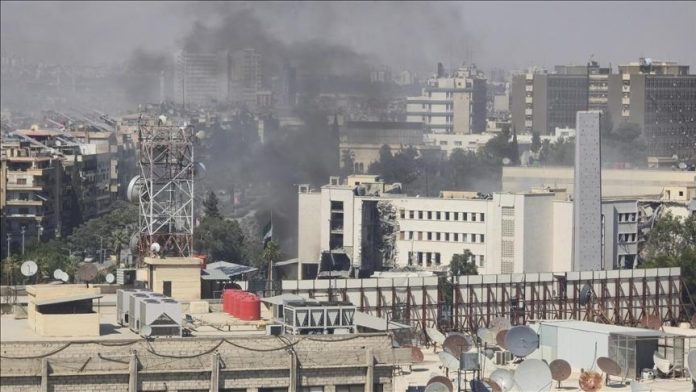In a significant diplomatic breakthrough, Syria and Israel have reached a ceasefire agreement following a wave of deadly sectarian violence in southern Syria. The deal, mediated by the United States, comes after six days of intense clashes in the Sweida province that resulted in nearly 600 deaths, reported the Al Jazeera.
U.S. Special Envoy for Syria, Tom Barrack, announced the ceasefire early Saturday, stating that Israeli Prime Minister Benjamin Netanyahu and Syrian interim leader Ahmed al-Sharaa agreed to halt hostilities under the guidance of U.S. Secretary of State Marco Rubio.
Regional powers including Turkey, Jordan, and Syria’s neighboring countries have backed the agreement.
“We urge Druze, Bedouin, Sunni, and other minority communities to lay down arms and work towards a peaceful and united Syria,” Barrack said on social media.
The ceasefire stipulates the return of Syrian military and security institutions to all parts of Sweida, the disbandment of local armed factions, surrender of heavy weapons, and integration of fighters into state security forces.
In response, the Druze spiritual leadership welcomed the deal and called for a return to peace, wisdom, and reconciliation.
The truce comes amid mounting humanitarian concerns. UN convoys attempting to deliver aid were blocked from entering conflict-hit areas in recent days, as reported by Xinhua.
So far, the Syrian government has not officially commented on the ceasefire.
The recent surge in violence began with a local dispute between Druze and Bedouin groups but quickly spiraled into widespread fighting involving government troops. The Britain-based Syrian Observatory for Human Rights (SOHR) reported that around 600 people were killed, including civilians and combatants from multiple factions.
The eruption of violence underscores Syria’s ongoing instability, barely six months after the collapse of its previous government, and has raised alarms of further regional destabilization.




